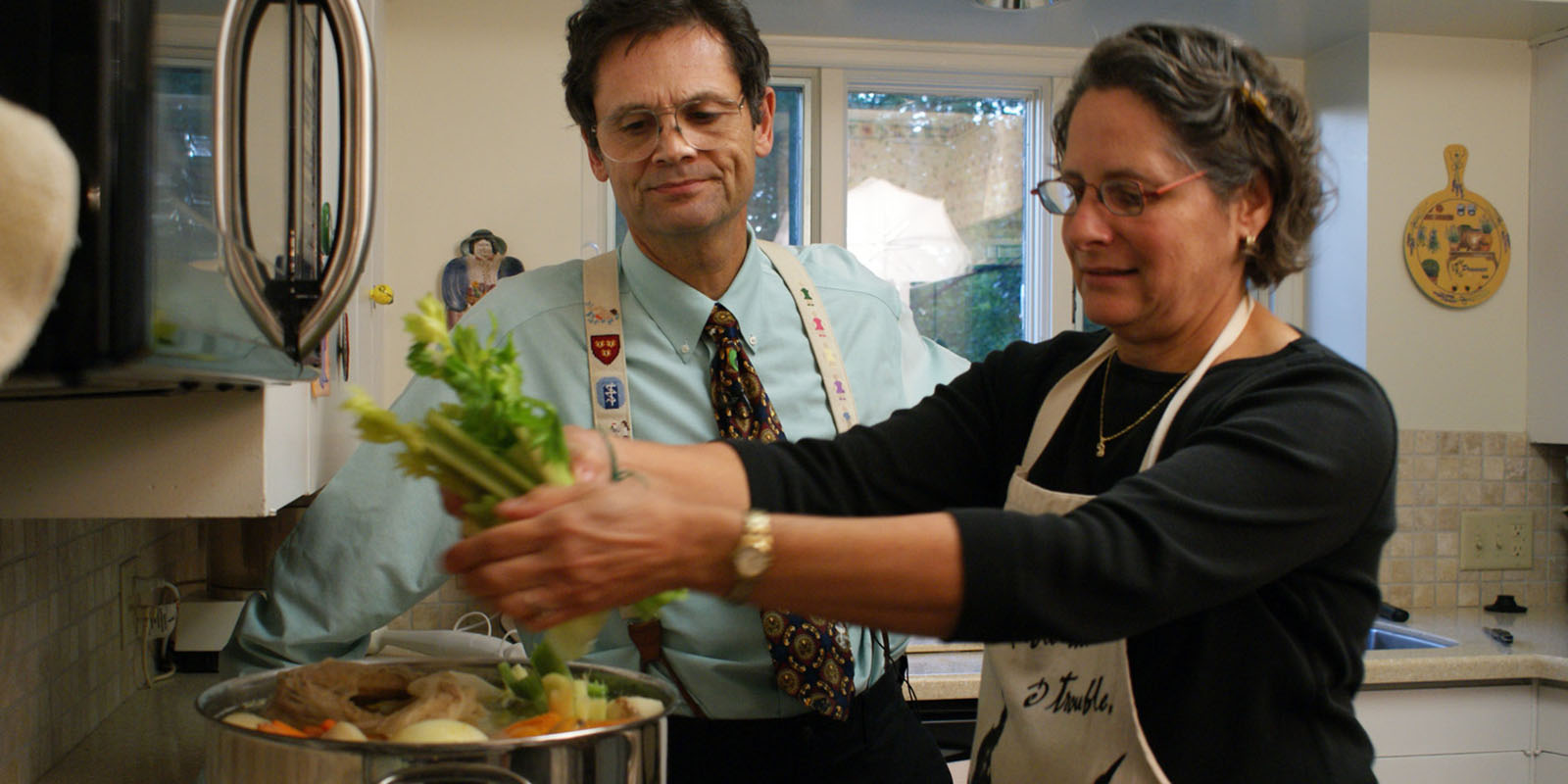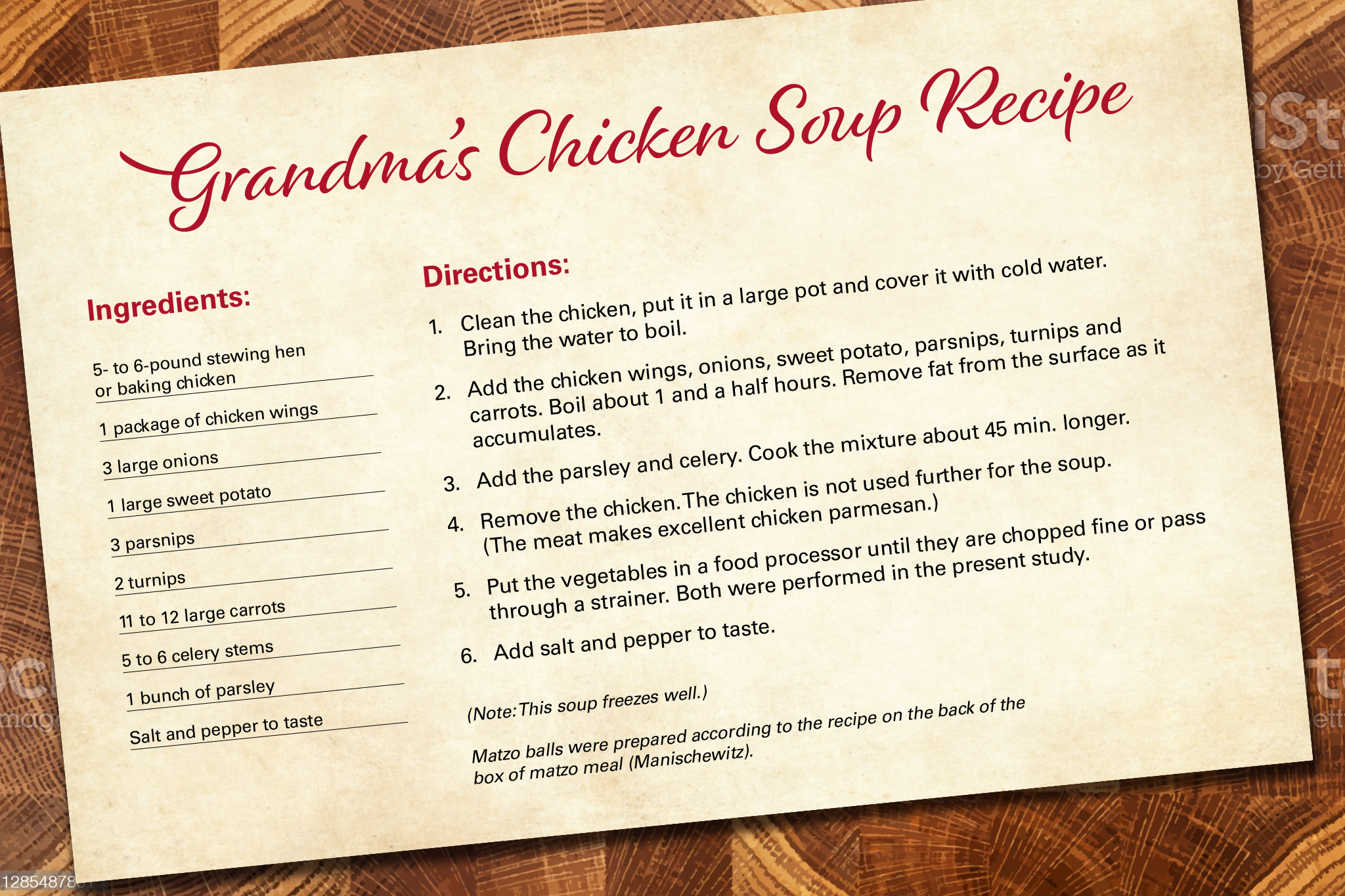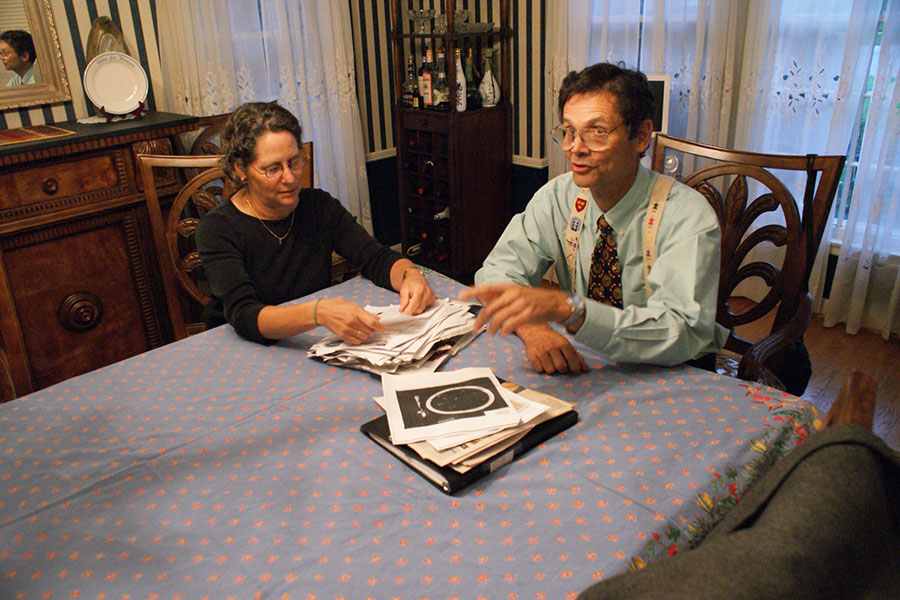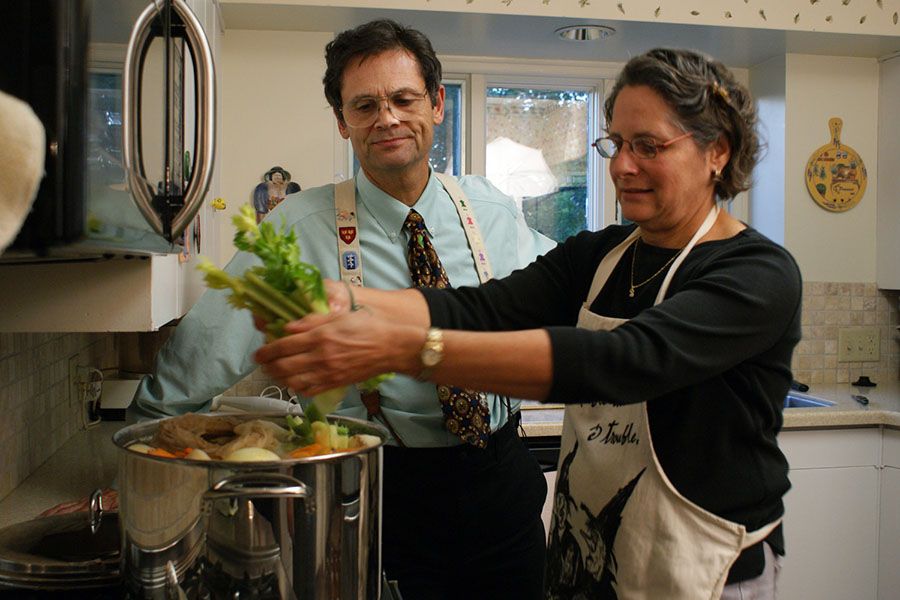Chicken Soup for UNMC's Soul
A feel-good study by one of UNMC’s top researchers has proven to be comfort food for the media for nearly 30 years. Several years ago, Stephen Rennard, MD, one of UNMC’s top scientists, decided it would be fun to put the old folk wisdom to the test. Cultures all over the world have some version of the credo that if you’re sick, you should eat chicken soup. It’ll make you feel better. Grandma says so! So it must be true.
But Dr. Rennard is a scientist. He lives to find the truth of things, to figure things out. So, into the lab he went.
And, he had just the chicken soup to test. His wife, Barbara, makes magical chicken soup. Heavenly chicken soup. It is her grandmother’s recipe, and if any chicken soup could cure colds, this would be this one.
You can read the scientific paper if you’d like. But, bottom line, Grandma was right (as always). And this time, science confirms it. It was officially peer reviewed and published, first in 1993, and again in 2000.
“What we did in the laboratory was actually very rigorous,” Dr. Rennard said. “Admittedly, we did it for the fun of it. Because we were amused by it like everybody else.”
And?
“What our work shows is that there are ingredients in common foodstuffs that might have anti-inflammatory actions,” he said.
But that finding brought about another scientific reaction.
There was just something about hearing this, having it proven, scientific research showing us that Grandma knew best, that struck a chord with people. With the media, especially. The story was a big hit when it first came out, and it’s been one ever since. Media all over the world, every year, and possibly even this very minute, have reported on it nonstop.
"As much as I hate to have to admit it, my chicken soup, which is the best chicken soup there is, doesn’t have any greater effect than anybody else’s. Chicken soup is good no matter what you do."
– Barbara Rennard
“It never loses its luster,” said Tom O’Connor, who headed UNMC’s media relations efforts from 1987 until his retirement in 2020.
At our last Google, “rennard chicken soup” resulted in 27,500 results in 0.49 seconds.
Like the soup itself, there’s just something in this story that makes us feel good.

Dr. Rennard, UNMC’s inaugural scientist laureate, is a world-renowned chronic obstructive pulmonary disease (COPD) researcher. Well, he’s world renowned for his COPD research within scientific circles.
But, now he’ll always be “Did you know”-famous for his work with chicken soup.
It must be like being a world-class piano virtuoso now forever associated with some poppy one-hit wonder you did on a lark.
Well, no, Dr. Rennard said. It’s not like that at all. “It would be kind of like,” he said, and then paused for a good 10 seconds, trying to think of what it would be like.
“OK, so Charles Dodgson,” Dr. Rennard finally said. (Charles Dodgson? Pen name: Lewis Carroll.) “It’s kind of arrogant to compare yourself to somebody like that. But, he got to be really famous for ‘Alice in Wonderland.’
“He was actually a serious mathematician,” Dr. Rennard said.
"One of the things that’s interesting is that there’s little doubt that 100 years from now probably everything else that I’ve done will be forgotten because it’ll be irrelevant and out of date. But the chicken soup paper probably still will be cited. I’m speculating."
Stephen Rennard
But, you know what? That’s OK. This study, this story, just like chicken soup itself, goes beyond science. It makes us feel better. It gives us comfort. It lets us know we are loved.
Chicken soup has given Dr. Rennard three great career highlights, the kind few scientists are lucky to get:
- His wife Barbara, the study’s first author and head soup chef, always loved listening to Bob Edwards on National Public Radio (NPR). Guess who was interviewed by Edwards about chicken soup and managed to get his wife in on the call? “He talked to me for 10 minutes. He talked to her for the whole rest of the hour!” Dr. Rennard said. “And my wife’s friends were listening to NPR radio and said, ‘That’s Barbara Rennard!’ ”
- When Dr. Rennard’s hometown paper, the St. Louis Sun, was doing a chicken soup story for its Sunday magazine, it asked him for a photo. Well, it is his wife’s grandmother’s recipe, he said, and she was from St. Louis. How about a photo of her? It ended up being an old photo of Barbara Rennard’s grandmother cooking with her two young daughters, Barbara’s mother and aunt. Heartwarming stuff. “I got my mother-in-law’s picture in the newspaper,” Dr. Rennard said. A man can’t do much better than that.
- Dr. Rennard and chicken soup were a question in Trivial Pursuit. Every parent can relate: of all the work he has done, it was nice to finally have something his kids thought was pretty cool.
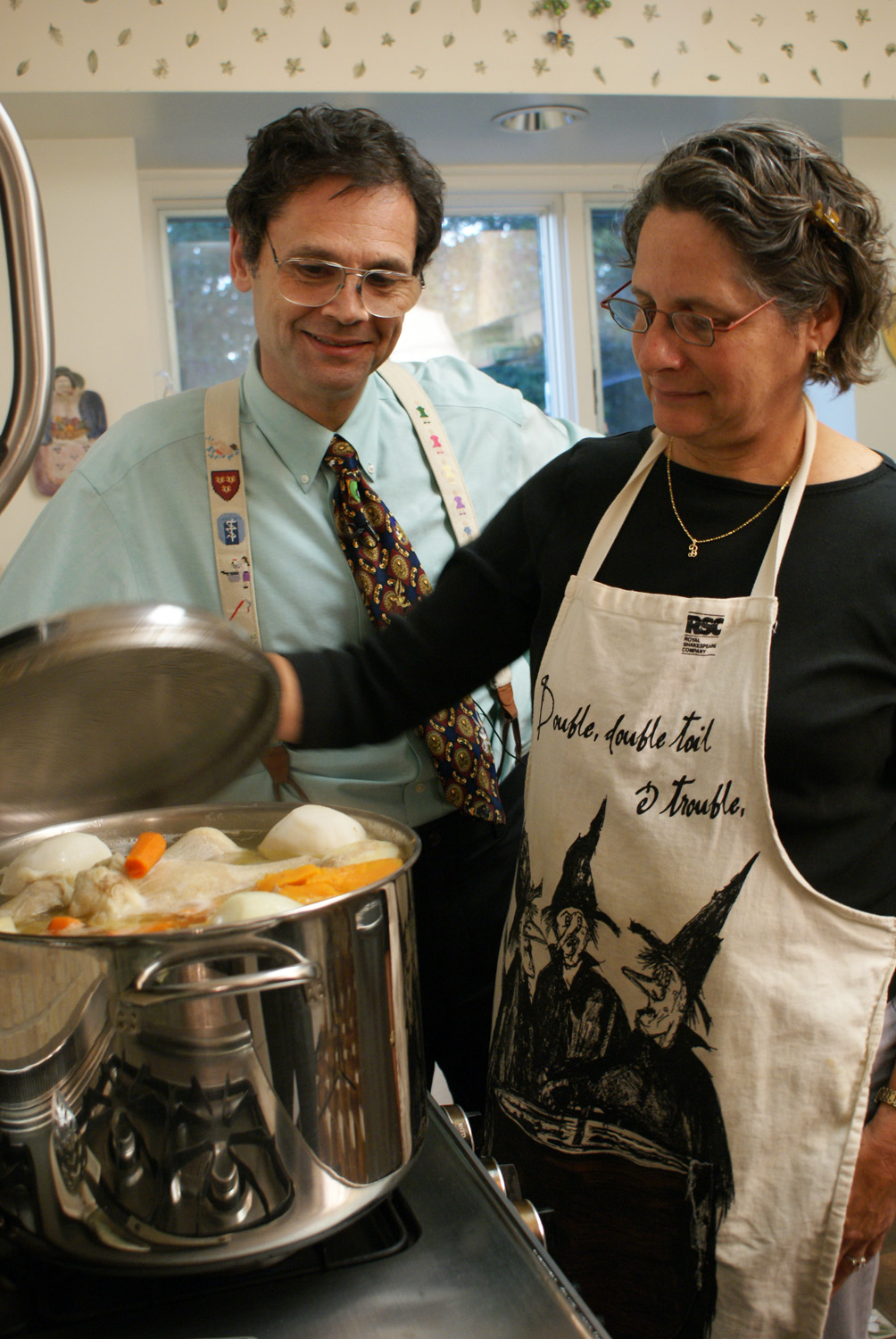
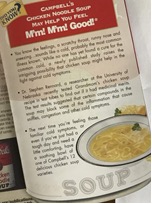
For more than 20 years, almost each time Dr. Rennard’s chicken soup study has been mentioned in the media, something else has been mentioned: UNMC. Barbara Rennard’s recipe (her grandmother’s recipe), and the scientific confirmation that chicken soup really does make you feel better when you’re sick, has brought unfathomable amounts of attention, and goodwill, to the medical center we call home.
What’s the dollar value on this kind of media exposure?
“It would be a million for sure,” said Vicky Cerino, UNMC’s media relations coordinator, who has been with the story through the years. “Perhaps several million.”
At UNMC, we are about metrics, and measurables, and data. But, in this case, we simply can no longer put a number on it. We can’t keep up.
We can’t because the chicken soup study, this story, is about science, yes. It’s about inhibiting neutrophil migration, and an anti-inflammatory effect that can lead to mitigation of symptomatic upper respiratory tract infections. But, it’s also about something else.
Of course we can’t keep track of how many times this story has been told and re-told again.
It would be like trying to measure a grandmother’s love.
Full video: Chicken Soup for a Cold
Chicken soup in the time of COVID-19
Dr. Rennard joined colleagues in publishing an update to the chicken soup study and story, “Chicken Soup in the time of COVID,” which was published in the journal Chest. In it, the authors revisited the lessons learned previously and applied them to the new pandemic: that chicken soup worked on a two-pronged approach.
“The feel-good aspect of it is important,” Dr. Rennard said. That is, it helps to know that someone is taking care of you, with love. But, also, there is strong scientific evidence that chicken soup is an effective treatment beyond the psychosocial aspect. With COVID, it was important that we don’t go looking for miracle cures before they are proven.
“You only want to use medicines when you are sure that they will work, and are safe,” Dr. Rennard said.
